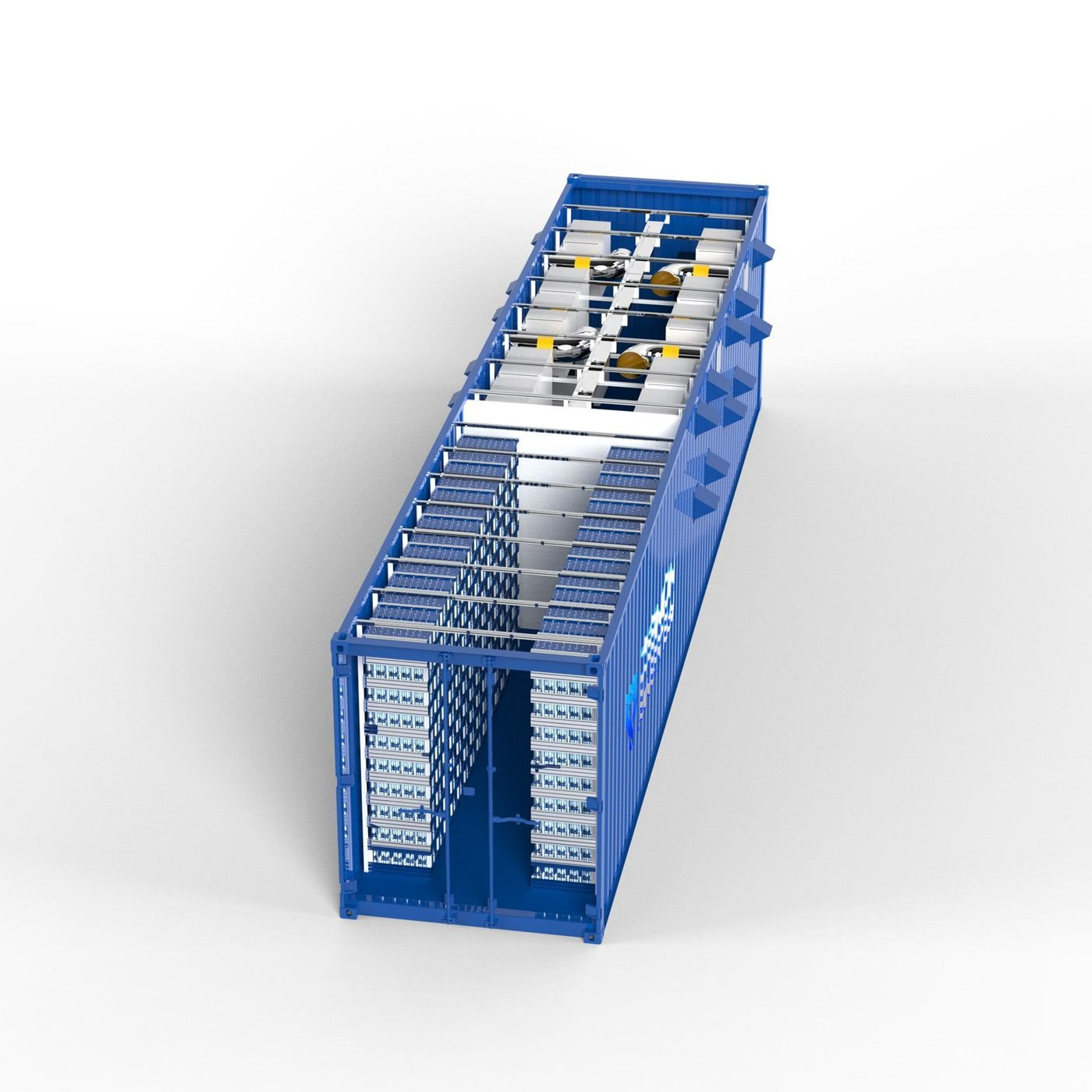Portrait of a startup that is producing a 3.75-ton titanium battery with a lifespan of up to 20 years, enough power for 10 homes
- Tram Ho
On a sunny December morning near the port of Amsterdam, a 40-foot shipping container was lifted high, rotated slightly in the air, and lowered near a 20-foot electric crane. Inside the container is a 3.75-ton battery – which is said to be able to power about a dozen homes. “Without electricity, we wouldn’t be able to produce,” said Jeroen Droog, CEO of Albeton Algemene Betonmaatschappij BV, the plant’s owner.
Albeton, the largest concrete producer in the Netherlands, is facing a severe power shortage. This situation prompted the company to “shake hands” with the Dutch startup Zenon Energy Europe BV to create a new battery system twice the size of normal. The diesel ban imposed by Amsterdam in 2030 makes electricity an important source of energy.
Although the Netherlands leads the World Economic Forum’s infrastructure rankings, the national grid still has to operate at full capacity, while prices fluctuate wildly throughout the day. This prompted Zenon, founded in 2020 by two oil industry experts, to design a specialized product that allows people to charge their batteries overnight when prices are low and use stored energy when prices are high. .
Aimed at simplicity, Zenon uses a modular system that can be stacked and easily expanded. The containers are inspired by…beer kegs, have small holes on the sides for cooling, and automatically adjust the charging speed accordingly. Recycled aluminum frames made in Europe are used because they are resource efficient and easy to obtain.
The day the 40-foot container was delivered, workers at Zenon’s factory in downtown Arnhem were making batteries for a restaurant. The production process is minimalist so that even Giannini, who doesn’t really have much experience, can reach the line when one of the more than 10 assembly workers needs a break.

Zenon’s revenue for the fiscal year ended March was over $14 million
Ashok Jhunjhunwala, a professor of engineering at the Indian Institute of Technology Madras, said the battery system could be used almost anywhere. Instead of using the chemicals lithium-iron-phosphate and nickel-magnesium-cobalt as manufacturers of consumer products, Zenon uses a titanate anode, allowing the battery to charge and discharge faster than usual. However, because it is more than twice as heavy as other lithium-ion designs, titanate is not used in cars, which are at the heart of most battery developments.
Zenon says its batteries have a lifespan of 20 years; charge and discharge 20,000 times, which is almost 10 times more than the most advanced EV battery. “When supply and demand peak at different times, titanium technology batteries work very efficiently because they charge and discharge very quickly,” said Jhunjhunwala.
According to Bloomberg, the North Sea nations have committed to producing 260 gigawatts of offshore wind power by 2050. The Netherlands itself is planning to quadruple its output by 2040, and therefore, some of the technology stored. Power storage is essential.
“On-site storage is a key strategy for accelerating renewable energy deployment and reducing reliance on natural gas,” said Dharik Mallapragada, a research fellow at MIT’s Energy Initiative.
According to experts, the market is expected to reach about $28 billion in the decade, prompting dozens of new companies to access market share, even as veterans like General Electric, SunPower or Toshiba are constantly increasing. building energy storage companies.
With sales of up to 13 million euros ($14.1 million) for the financial year ending March – quadrupling its original forecast, Zenon plans to double the size of the plant, while taking advantage of the use the space of an oil service company next door.
“We are selling batteries at unexpected prices. Our customers include Kees Greeve BV, a leader in indoor and vertical farming, and Jumbo Supermarkten BV, which owns more than 700 grocery stores in the Netherlands and Belgium,” said Giannini. .
According to Dutch network operator Liander NV, electricity prices will fall if large companies can reduce battery capacity. This potential excites Giannini.
“If 100 Dutch companies had 100 megawatts of storage, the cost of energy for the people would be reduced by 15%. That’s how the government should build the future and this can be done within a year,” Giannini said.
By: Bloomberg
Source : Genk
